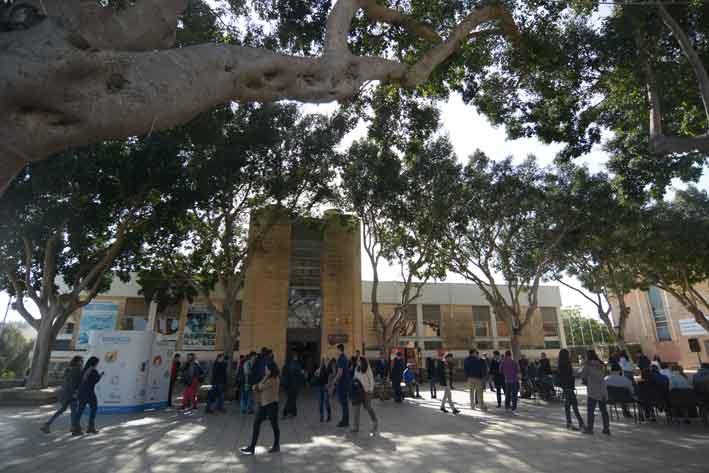The September session of the MATSEC examinations could be moved to November and the University should consider accepting students on a provisional basis, meaning that those who fail their May exams could avoid missing a whole year, the Education Ministry is being told.
The suggestion is one of 26 recommendations made in the report on the future of post-secondary education, which was launched be Education Minister Evarist Bartolo earlier this week.
The report urges the MATSEC board to establish an expert group to look into the implications of an exam timing change and resolve any entry implications with University.
It also says proposes a solution which it says is considered to be “workable.” This includes moving the first exam session to May-June, with results published in mid-August. The second/supplementary session would then be moved from September to November-December, offering a full range of subjects for examination in this session, as in the first MATSEC session.

Currently, not all O’level subjects offered in the May session are offered in the September session. This means that students who fail in certain subjects cannot sit for a resit in September and have to retake the test the following year.
The working group’s proposal also suggests that oral and listening comprehension exams as well as the practical work in schools is conducted on a continuous, ongoing basis.
Furthermore, the University of Malta should start accepting students on a provisional basis. These would only be admitted on the basis that they had achieved a number of pre-determined points. It would remain the prerequisite of individual institutions whether to accept provisional students or not. MCAST already has a similar system.
The working group says the above mentioned proposal has a number of disadvantages, such as avoiding discrimination and giving students more time to prepare for exams. “Furthermore teaching and student learning time in the second and final year would be increased by about 4-5 weeks.”
Students who only obtain partial qualifications required for admission to university or the sixth form college would have a standing year during which they can upgrade their qualifications.

‘A more sensible, holistic approach’
The report also highlighted three concerns arising from such a system, which include the risk that students in Form 5 might be tempted to sit for the November session just two months into the scholastic year.
A spokesperson for the Education Ministry said the proposal, which is still to be looked into, would allow students to take a re-sit in the November session and at the same time join a Further / Higher Education institution on provisional basis (assuming successful discussions with these institutions) instead of losing a year.
“The ultimate priority, and this can be found throughout the report, is to minimize the win-all-and-lose-all structure of examinations and adopt a more continuous and more sensible holistic approach to assessment,” she said.

A review of entry requirements
Another, unrelated proposal included in the report is for the authorities to request the University of Malta and MCAST to review their entry requirements.
“Post-secondary institutions should consider offering a revision course for their students who do not manage to qualify for the Matriculation Certificate in the June/July session of examinations. Currently the University does not admit provisional students. University should also consider accepting provisional students who have only one element missing in the Matriculation qualifications: students with such dispensation could be provided with conditional acceptance, subject to acceptable progress in the first year of undergraduate experience.”
The report also suggests that the University start offering a Foundation course starting in mid-February (second semester) for students who manage to qualify for the Matriculation Certificate in the November/December session of examinations.
The university is also being urged to fix the system with regard to people with disabilities such as ADHD, autism, dyslexia and dyscalculia, who might be very bright but still struggle to achieve some particular requirement. “Often these have to go abroad to foreign universities or colleges to achieve their dreams because these are much more flexible in course requirements. For example, some high-achieving autistic students still find it extremely difficult to achieve a SEC pass in Maltese. These young people are being barred from following university studies and have to wait years until they can apply under the maturity clause. This is not just resulting in undue distress, but above all a waste of talent which the country cannot afford. Solutions need to be found to accommodate these exceptional cases.”
Unrealistic expectations?
In other comments which are also related to the issue of entry requirement the report also pointed out that the high exam failure rates may be the result of unrealistic expectations. “The high failure rates in SEC results in Maths, Maltese, English and Italian in 2016 cohort may be indicative of the disconnect between the standards expected by University examiners, and the real capabilities of youngsters leaving secondary school. As in the case of the SEC syllabus, the MATSEC syllabus is heavily based on content rather than skills. This leads to an endless cycle of cramming, private tuition, teaching to the test - coaching rather than educating.”